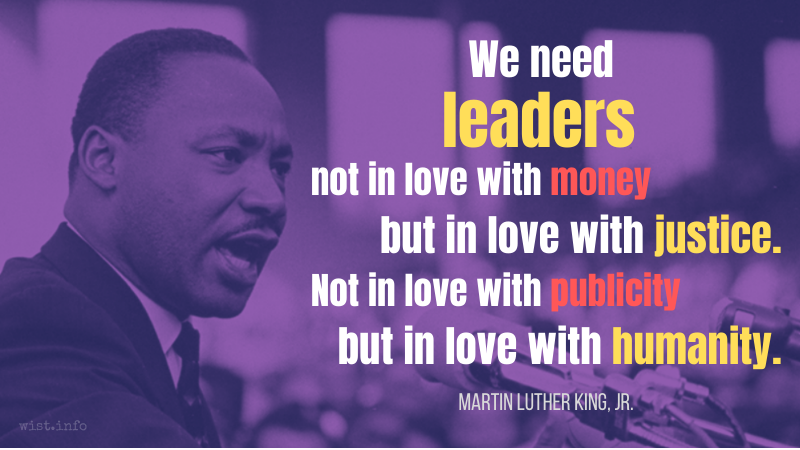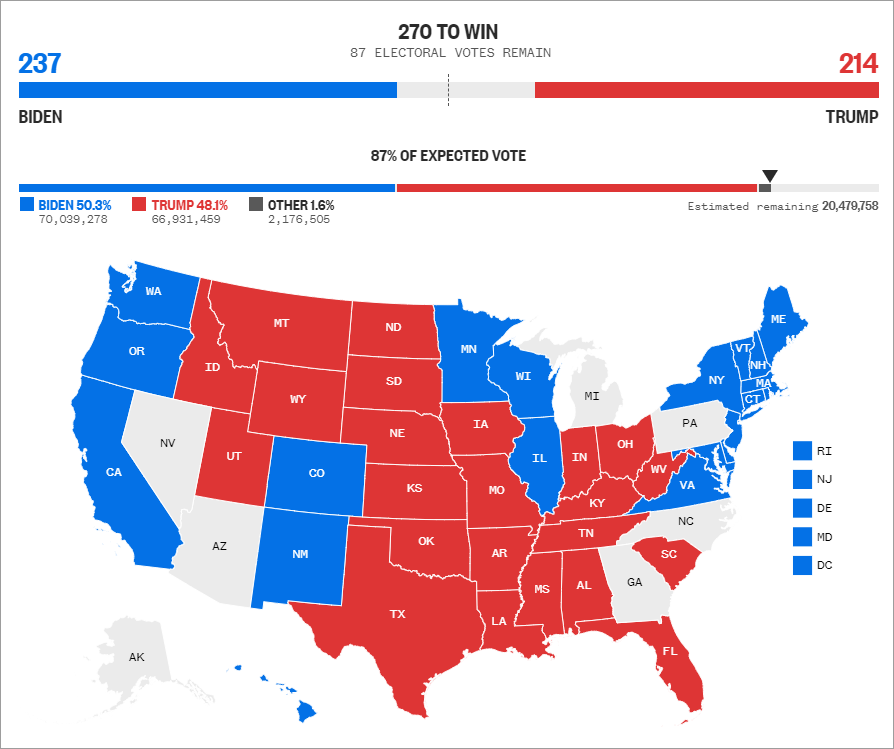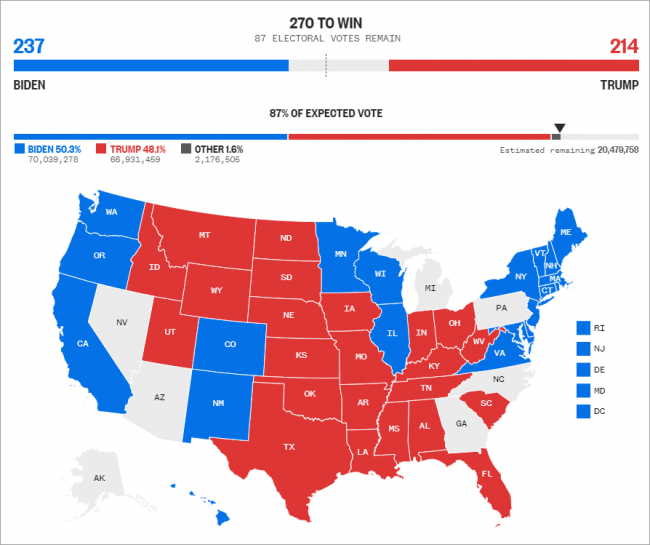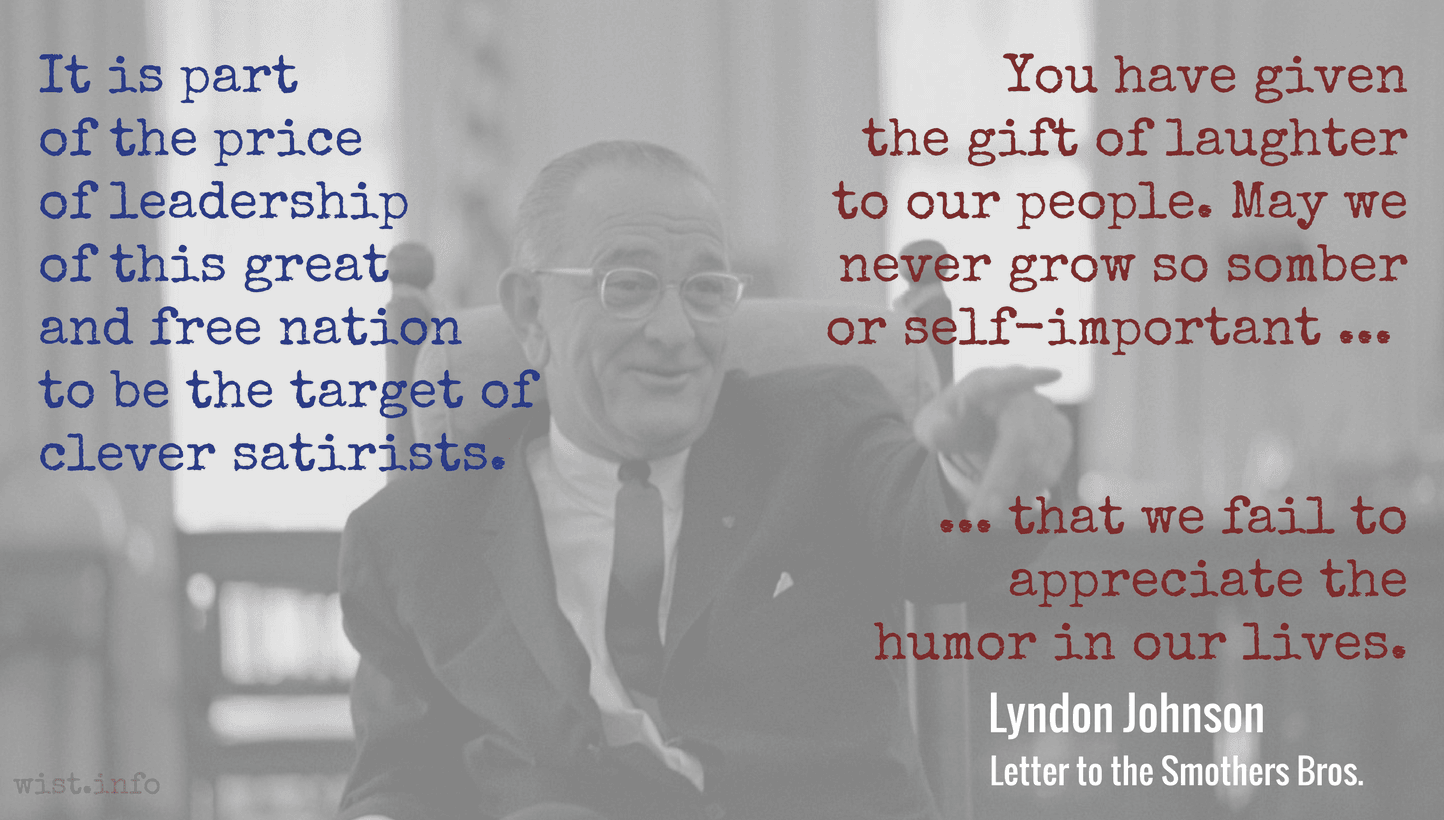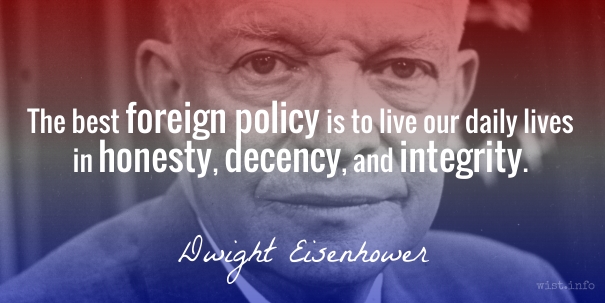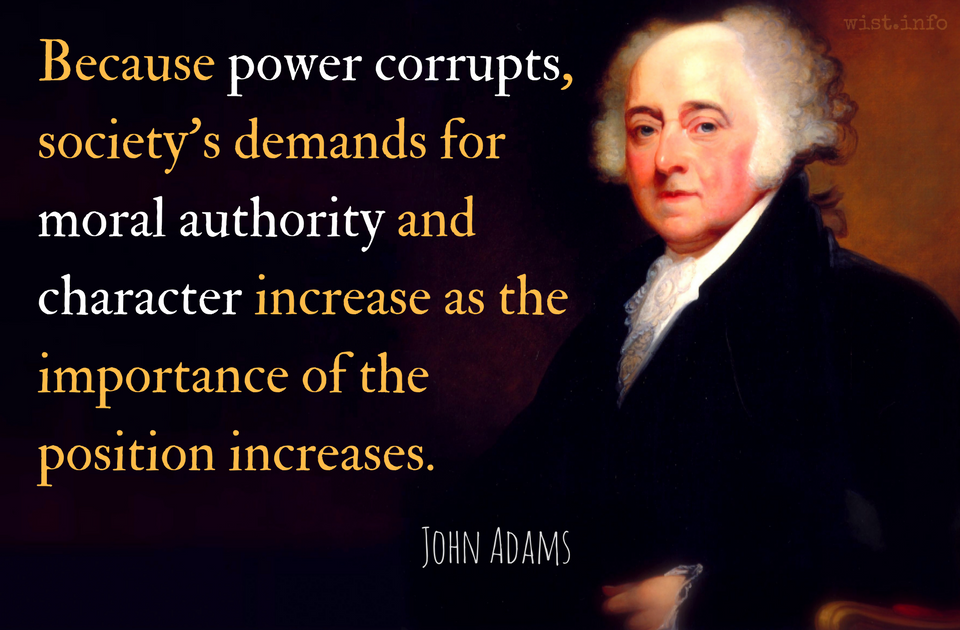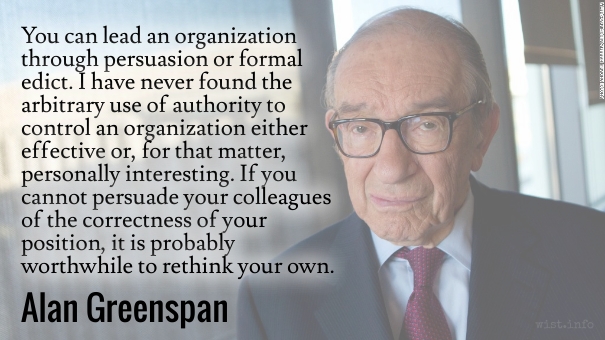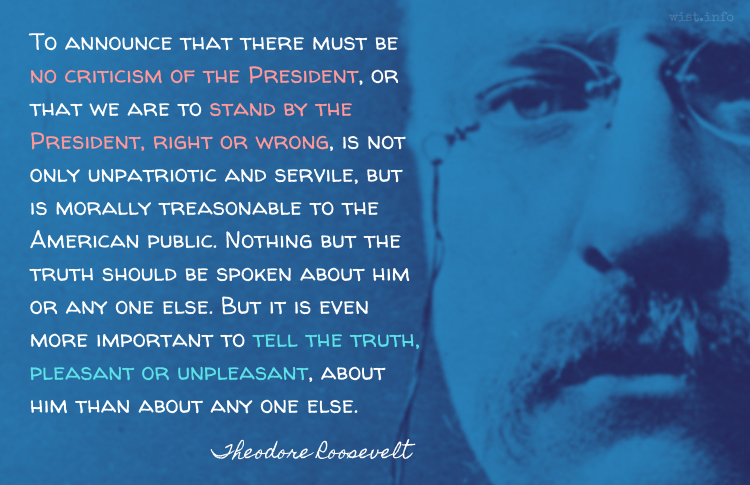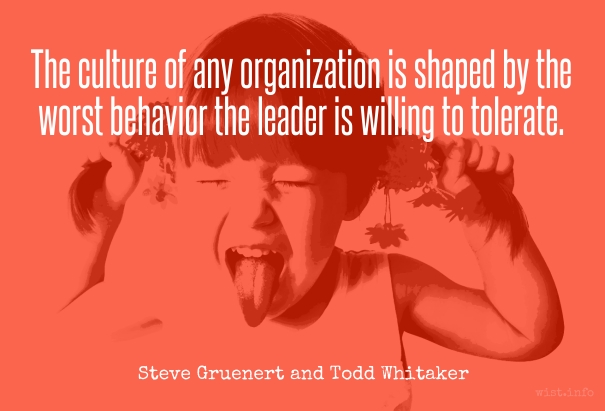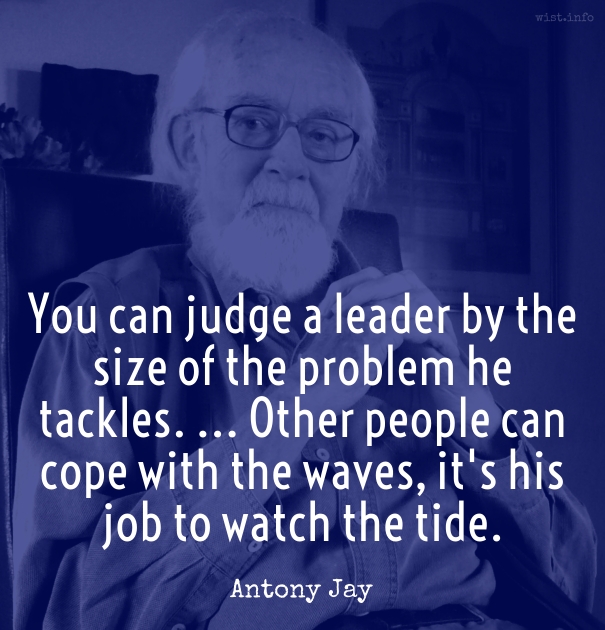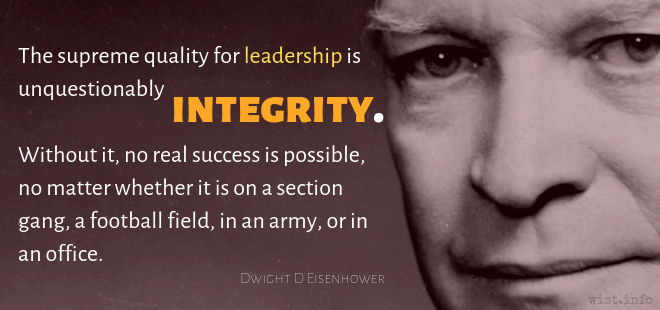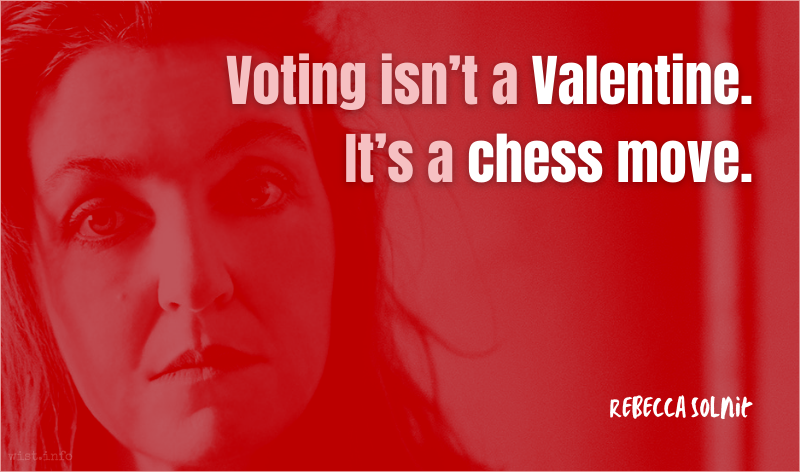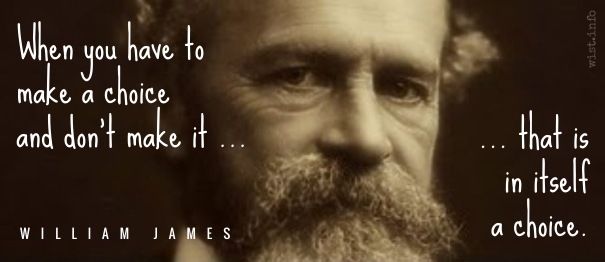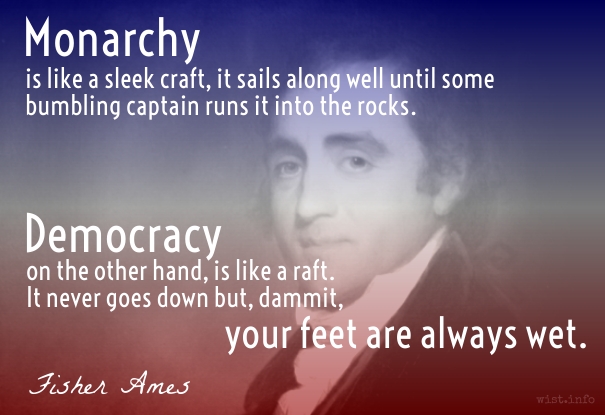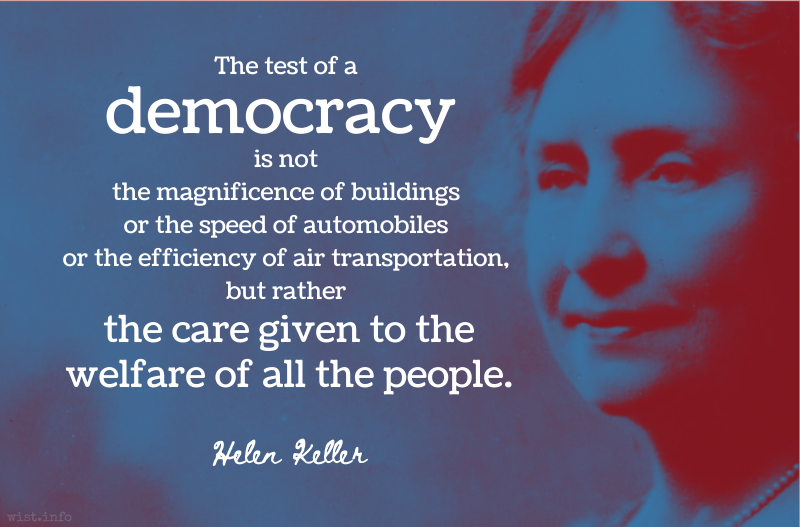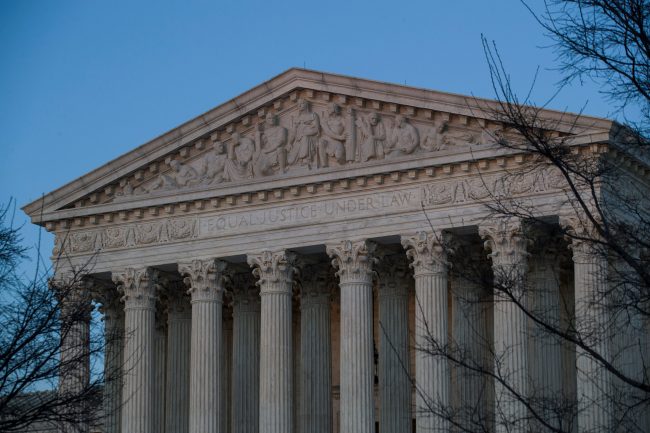The Rev. Dr. Martin Luther King, Jr. (1929-1968), was eminently quotable (though his tendency to re-use key phrases in multiple sermons, speeches, and writings, sometimes drives a quotation collector to distraction). Here are a few thoughts from him from my quotation collection that I find germane even today, over fifty years after King’s killing.
We must come to see that peace is not merely a distant goal we seek, but it is a means by which we arrive at that goal. We must pursue peaceful ends through peaceful means.
“A Christmas Sermon on Peace,” radio broadcast, CBC (Canada) (24 Dec 1967)
King’s focus on peaceful protest and civil disobedience remains a challenge to this day.
A nation that continues year after year to spend more on military defense than on programs of social uplift is approaching spiritual doom.
“Beyond Vietnam,” speech, Clergy and Laity Concerned, Riverside Church, New York City (4 Apr 1967)
King was writing during the Vietnam War, but the issue is just as real today.
Now Jesus himself saw the power that competition holds over men. He did not ignore it. Yet he does something with the conception of competition that hadn’t been done before. He takes the conception which has been used for lower purposes and rescues it from many of its dangers, by suggesting a higher method of its use. This is how he applied the term to his disciples. He saw them in danger of using it for low purposes. They wanted to compete for reputation and position — “which of them should be accounted greatest?” Jesus says so, if you must use the power of competition, if you must compete with on another, make it as noble as you can by using it on noble things. Use it for a fine, unselfish thing. “He that is greatest among you shall serve.” Use it for human good. Who shall be the most useful. Compete with one another in humility. See which can be the truest servant. It seems that Christ says, “Use it, but use it for higher and holier purposes. Use it not to surpass one another in esteem, but use it to increase the amount of usefulness and brother-help.” Such conceptions of competition lead to the surprising and ennobling position that there can be competition without hate and jealousy. Behold! You can struggle to beat and yet rejoice to be beaten.
“Cooperative Competition / Noble Competition,” sermon outline
King had a repertoire of turning around familiar talking points — in this case, rejecting the idea of competition being necessarily bad, but noting that it depends on what one is competing for.
We must not seek to use our emerging freedom and our growing power to do the same thing to the white minority that has been done to us for so many centuries. Our aim must never be to defeat or humiliate the white man. We must not become victimized with a philosophy of black supremacy. God is not interested merely in freeing black men and brown men and yellow men, but God is interested in freeing the whole human race.
“Give Us the Ballot,” Speech, Prayer Pilgrimage for Freedom, Washington, DC (1957)
King always made it clear that the struggle for equal rights for blacks was to the benefit of all Americans, not just blacks.
In the final analysis, love is not this sentimental something that we talk about. It’s not merely an emotional something. Love is creative, understanding goodwill for all men. It is the refusal to defeat any individual. When you rise to the level of love, of its great beauty and power, you seek only to defeat evil systems. Individuals who happen to be caught up in that system, you love, but you seek to defeat the system.
“Loving Your Enemies,” Sermon, Dexter Avenue Baptist Church, Montgomery (17 Nov 1957)
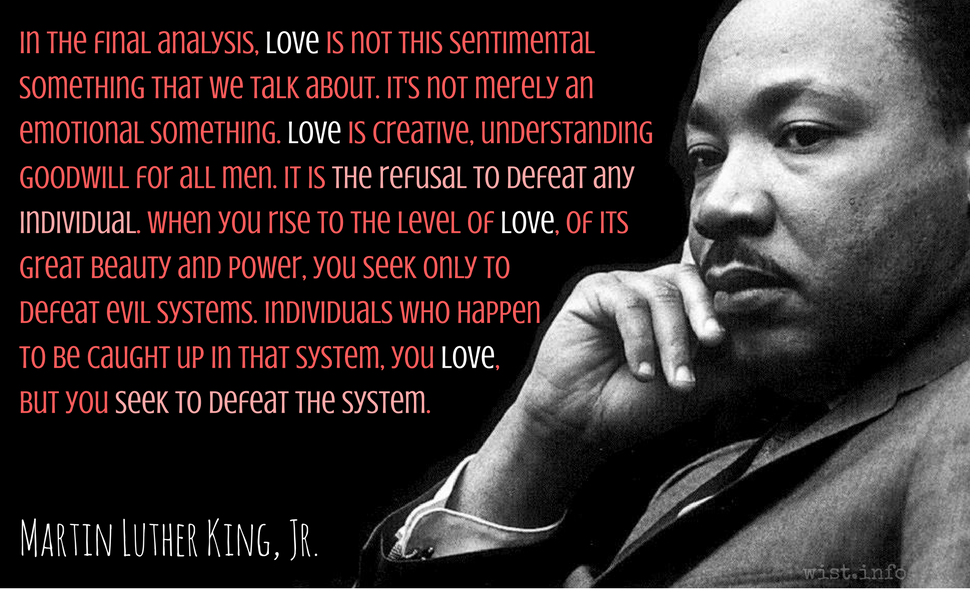
King saw the power of love going beyond sentiment to actual action.
We cannot in all good conscience obey your unjust laws, because noncooperation with evil is as much a moral obligation as is cooperation with good. Throw us in jail, and we shall still love you. Bomb our homes and threaten our children, and we shall still love you. Send your hooded perpetrators of violence into our community at the midnight hour and beat us and leave us half dead, and we shall still love you. But be ye assured that we will wear you down by our capacity to suffer. One day we shall win freedom, but not only for ourselves. We shall so appeal to your heart and conscience that we shall win you in the process, and our victory will be a double victory.
“Loving Your Enemies,” sermon, Dexter Avenue Baptist Church, Montgomery (17 Nov 1957)
The summary of King’s teachings on peaceful protest and civil disobedience.
Now there is a final reason I think that Jesus says, “Love your enemies.” It is this: that love has within it a redemptive power. And there is a power there that eventually transforms individuals. That’s why Jesus says, “Love your enemies.” Because if you hate your enemies, you have no way to redeem and to transform your enemies. But if you love your enemies, you will discover that at the very root of love is the power of redemption. You just keep loving people and keep loving them, even though they’re mistreating you. Here’s the person who is a neighbor, and this person is doing something wrong to you and all of that. Just keep being friendly to that person. Keep loving them. Don’t do anything to embarrass them. Just keep loving them, and they can’t stand it too long. Oh, they react in many ways in the beginning. They react with bitterness because they’re mad because you love them like that. They react with guilt feelings, and sometimes they’ll hate you a little more at that transition period, but just keep loving them. And by the power of your love they will break down under the load. That’s love, you see. It is redemptive, and this is why Jesus says love. There’s something about love that builds up and is creative. There is something about hate that tears down and is destructive. So love your enemies.
“Loving Your Enemies,” Sermon, Dexter Avenue Baptist Church, Montgomery (17 Nov 1957)
Forgiveness does not mean ignoring what has been done or putting a false label on an evil act. It means, rather, that the evil act no longer remains as a barrier to the relationship. Forgiveness is a catalyst creating the atmosphere necessary for a fresh start and a new beginning. It is the lifting of a burden or the canceling of a debt. The words “I will forgive you, but I’ll never forget what you have done” never explain the real nature of forgiveness. Certainly one can never forget, if that means erasing it totally for his mind. But when we forgive, we forget in the sense that the evil deed is no longer a mental block impeding a new relationship. Likewise, we can never say, “I will forgive you, but I won’t have anything further to do with you.” Forgiveness means reconciliation, a coming together again. Without this, no man can love his enemies. The degree to which we are able to forgive determines the degree to which we are able to love our enemies.
“Loving Your Enemies,” Sermon, Dexter Avenue Baptist Church, Montgomery (25 Dec 1957)
Forgiveness is hard.
This simply means that there is some good in the worst of us and some evil in the best of us. When we discover this, we are less prone to hate our enemies. When we look beneath the surface, beneath the impulsive evil deed, we see within our enemy-neighbor a measure of goodness and know that the viciousness and evilness of his acts are not quite representative of all that he is. We see him in a new light. We recognize that his hate grows out of fear, pride, ignorance, prejudice, and misunderstanding, but in spite of this, we know God’s image is ineffably etched in being. Then we love our enemies by realizing that they are not totally bad and that they are not beyond the reach of God’s redemptive love.
“Loving Your Enemies,” Sermon, Dexter Avenue Baptist Church, Montgomery (25 Dec 1957)
In a time of division like today, words for thought.
Philanthropy is commendable, but it must not cause the philanthropist to overlook the circumstances of economic injustice which make philanthropy necessary.
“On Being a Good Neighbor,” sec. 2, sermon, A Gift of Love (1963)
We sometime hear that the problems of poverty should be left to private charity. But even if that were adequate to meet the need (and it never has), it merely treats the symptoms.
The most dangerous type of atheism is not theoretical atheism, but practical atheism — that’s the most dangerous type. And the world, even the church, is filled up with people who pay lip service to God and not life service. And there is always a danger that we will make it appear externally that we believe in God when internally we don’t. We say with our mouths that we believe in him, but we live with our lives like he never existed. That is the ever-present danger confronting religion. That’s a dangerous type of atheism.
“Rediscovering Lost Values,” sermon, Second Baptist Church, Detroit (28 Feb 1954)
I have more respect for considered atheists than those who claim to follow a religion but, by their actions, do not.
As long as there is poverty in the world I can never be rich, even if I possess a billion dollars. As long as millions of people are inflicted with debilitating diseases and cannot expect to live more than thirty-five years, I can never be totally healthy even if I receive a perfect bill of health from Mayo Clinic. Strangely enough, I can never be what I ought to be until you are what you ought to be.
“Remaining Awake through a Great Revolution,” Commencement Speech, Morehouse College, Atlanta (2 Jun 1959)
Empathy and compassion.
It may well be that we will have to repent in this generation. Not merely for the vitriolic words and the violent actions of the bad people, but for the appalling silence and indifference of the good people who sit around and say, “Wait on time.”
“Remaining Awake Through a Great Revolution,” sermon, National Cathedral, Washington, DC (31 Mar 1968)
Sometimes waiting is appropriate. But sometimes it’s an easy excuse for not acting.
We need leaders not in love with money but in love with justice. Not in love with publicity but in love with humanity.
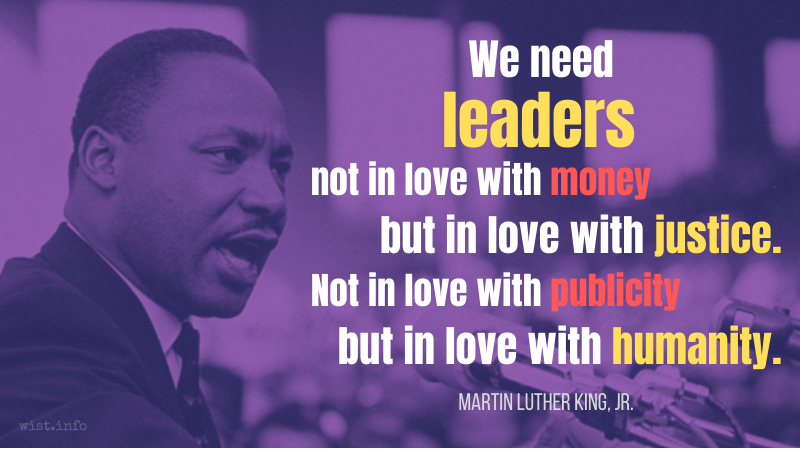
“The Birth of a New Age,” speech, Alpha Phi Alpha banquet, Buffalo (11 Aug 1956)
It may well be that the greatest tragedy of this period of social transition is not the glaring noisiness of the bad people, but the appalling silence of the good people. It may be that our generation will have repent not only for the diabolical actions and vitriolic words of the children of darkness, but also for the crippling fears and tragic apathy of the children of light.
“The Christian Way of Life in Human Relations,” speech, General Assembly fo the National Council of Churches, St Louis (4 Dec 1957)
A frequent theme of King’s, nudging audiences who thought of themselves too easily as the “good guys.”
Any church that violates the “whosoever will, let him come” doctrine is a dead, cold church, and nothing but a little social club with a thin veneer of religiosity.
“The Drum Major Instinct,” sermon, Ebenezer Baptist Church, Atlanta (4 Feb 1968)
It may be true that morality cannot be legislated, but behavior can be regulated. It may be true that the law cannot change the heart but it can restrain the heartless. It may be true that the law can’t make a man love me, but it can restrain him from lynching me, and I think that’s pretty important also.
“The Other America,” speech, Stanford University (14 Apr 1967)
A riot is the language of the unheard.
“The Other America,” speech, Stanford University (14 Apr 1967)
In the end, we will remember not the words of our enemies, but the silence of our friends.
“The Trumpet of Conscience,” Steeler Lecture (Nov 1967)
I must confess, my friends, the road ahead will not always be smooth. There will be still rocky places of frustration and meandering points of bewilderment. There will be inevitable setbacks here and there. There will be those moments when the buoyancy of hope will be transformed into the fatigue of despair. Our dreams will sometimes be shattered and our ethereal hopes blasted. We may again with tear-drenched eyes have to stand before the bier of some courageous civil rights worker whose life will be snuffed out by the dastardly acts of bloodthirsty mobs. Difficult and painful as it is, we must walk on in the days ahead with an audacious faith in the future.
“Where Do We Go From Here?” Southern Christian Leadership Conference Presidential Address (16 Aug 1967)
My personal disillusionment with the church began when I was thrust into the leadership of the bus protest in Montgomery. I was confident that the white ministers, priests and rabbis of the South would prove strong allies in our just cause. But some became open adversaries, some cautiously shrank from the issue, and others hid behind silence. My optimism about help from the white church was shattered; and on too many occasions since, my hopes for the white church have been dashed. There are many signs that the judgment of God is upon the church as never before. Unless the early sacrificial spirit is recaptured, I am very much afraid that today’s Christian church will lose its authenticity, forfeit the loyalty of millions, and we will see the Christian church dismissed as a social club with no meaning or effectiveness for our time, as a form without substance, as salt without savor. The real tragedy, though, is not Martin Luther King’s disillusionment with the church — for I am sustained by its spiritual blessings as a minister of the gospel with a lifelong commitment: The tragedy is that in my travels, I meet young people of all races whose disenchantment with the church has soured into outright disgust.
Playboy interview (Jan 1965)
King’s disappointment with white Christian church response to his message came through repeatedly — and with justification.
Any religion that professes to be concerned with the souls of men and is not concerned with the slums that damn them, the economic conditions that strangle them, and the social conditions that cripple them is a dry-as-dust religion. Such a religion is the kind the Marxists like to see — an opiate of the people.
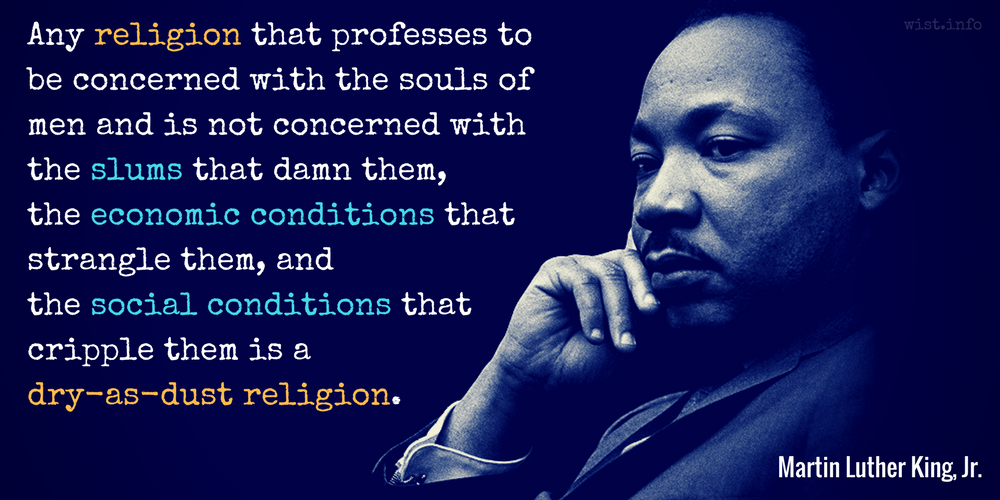
Stride Toward Freedom (1958)
King focused on civil rights, legal equality before the law. But he also was a proponent of economic rights and justice as well.
Like anybody, I would like to live a long life. Longevity has its place. But I’m not concerned about that now. I just want to do God’s will. And He’s allowed me to go up to the mountain. And I’ve looked over. And I’ve seen the Promised Land. I may not get there with you. But I want you to know tonight, that we, as a people, will get to the promised land! So I’m happy, tonight. I’m not worried about anything. I’m not fearing any man. Mine eyes have seen the glory of the coming of the Lord.
“I’ve Been To The Mountaintop,” speech, Memphis (3 Apr 1968)
King’s last public speech. He was assassinated the following day.
